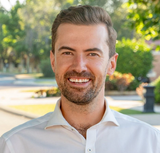This was not just another trial
"All because you killed him, Mr Brearley."
This was a profound and direct statement, delivered as part of the sentencing remarks by Chief Justice Peter Quinlan, in the state's case over the death of 15-year-old Cassius Turvey.
Having read and watched the remarks, I want to focus not on the terrible events that led to Cassius' death, nor the police investigation or prosecution but on the role of Western Australia's Supreme Court.
For some time, I've been a distant participant in our justice system – whether as a policy advisor, legislator or writer. So often, when looking at 'justice' in WA – from the crime itself through to incarceration – all are confronted with vile atrocities. Desperate failure after failure. The sort none of us really want to turn our minds to.
It takes a special kind of person to work within the justice system and the law more broadly. Institutionally, it takes person after person to keep turning around these slow-moving dreadnoughts, riddled with holes, barely able to function. Directly and indirectly all of us continually rely on good leaders, good Western Australians, who can reflect the best of our state in some of its very worst moments.
Last week, that good Western Australian was Chief Justice Peter Quinlan.
The case before him was one of those moments that tests not only the law but the moral character of the society it serves. Cassius, a 15-year-old Noongar Yamatji boy, was walking home from school in Middle Swan when he was brutally attacked and later died from his injuries.
If you listen to the audio of Chief Justice Quinlan delivering his sentencing remarks, you'll hear, from the public gallery, the grief of Mechelle Turvey – Cassius' mother. It is unforgettable.
As a new father who loves his son more than my own life, it is a sound that expresses a love so deep and a loss so total that I fear I wouldn't survive it.
For a time, Cassius went to the same high school I did – Governor Stirling Senior High School in Perth's eastern suburbs. Growing up on that side of the city, I know how parlous the situation can be. How violence gets normalised. How often it's easier for people and institutions to ignore that part of Perth altogether – until something terrible happens.
Cassius was attacked in Middle Swan, just over three kilometres from Governor Stirling Senior High School. Just over two kilometres from the Midland 'traino' where we'd catch a bus or train home.
That part of Perth - the one I knew, and the one Cassius lived in - isn't some abstract postcode. It's real. It's close. It's home to thousands of kids like him.
The Chief Justice didn't deliver his remarks in isolation. This was a courtroom full of grief, under the full weight of public attention.
Each part of our state wanted its own piece of this moment. Each brought its own perspective. Each arrived with hope or expectation or pain.
The Aboriginal community - reeling from yet another needless death, facing daily systemic racism - came seeking something resembling justice.
WA Police, stewarded in the courtroom by Detective Senior Sergeant Stephen Cleal and supported by Commissioner Col Blanch's measured public tone, had to build and bring a case at pace, but without fault. It had to reflect the tension in our communities and a shared need for truth.
The prosecutors (and indeed the defence) gave everything they had. You could see it in the relieved faces of the public prosecutors as they left court: their awareness that this was not just another trial. This was a child. This was Cassius. Forever 15.
And then there were the waiting cameras. The media. The state and nation. Watching not just for justice, but for a reckoning. One where race, youth, violence and institutional power collided.
It was in that moment – emotional, intense, weighed down by pressure, soaked in expectation and pain – that the final words came from the bench of the Chief Justice.
There, with strength and clarity, he did not just punish.
He acknowledged.
He reflected.
He started a process to heal.
Heal not the Turvey family alone.
Heal not just the broader judicial family.
Heal not only our Aboriginal family.
But heal our state – as one whole.
When Peter Quinlan was recommended for appointment in 2018, then Attorney General John Quigley said:
"The Government of Western Australia was conscious it had a duty to all West Australians to choose someone who was wise, who was just, and who was a really good human being."
I encourage you to read the sentencing remarks for yourself.
Because within them, you'll find all three.
Wisdom.
Justice.
And a deeply good Western Australian.
In a state so often scarred by its failings, we were, on this day at least, blessed to have had him.
